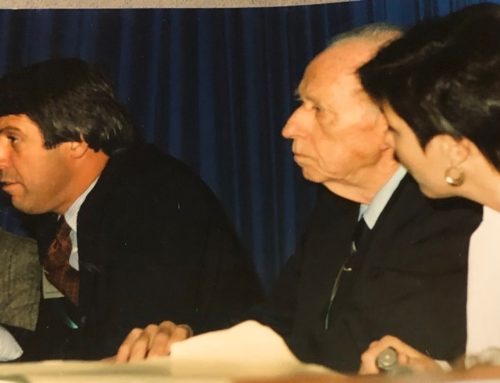I was recently asked how the Bowen Family Systems Theory had informed my professional understanding of how family work systems/organizations function. I have spent some time reflecting on that question. Considering that I learned it when fairly young and practiced it many times, I have stored some lasting lessons.
Learning It Then Using It
Here is what you need to know going in: you must learn it well enough to teach it. To be a credible facilitator and consultant, when you say you can help, you must know every detail of your plan. Using the Bowen Theory for family business issues is no different than showing someone how to work on a car, walking others through how to play a new game, or even demonstrating the current cool hip hop moves. You must know it well enough to teach it with conviction.
Every system/organization has its own spoken and unspoken norms for acceptable behavior. In my experience, entry into a family system can best be achieved by presenting an educational model. Teach the principles and concepts of the Bowen Theory so that they are well understood by those in the system, then stand back and observe. Learn to ask both neutral and penetrating questions that encourage those in the system to make their own observations and generalizations. As the facilitator, do not make observations or generalizations. Rather, help the client unpack the family patterns and discuss their possible impact, past and present, without your judgement or conclusion.
- I find it useful to wonder. “I’m wondering . . .“
- There is power in asking, “What do you see?“
- And you can offer, “Hmm, that’s interesting . . .“, but please sound interested.
- You can ask, “How does this relate to the family patterns we have identified?“ and wait for your family clients to point out systemic patterns.
It is rarely productive to opine or pronounce. We as consultants are not therapists. Even though our observations often have something to do with human behavior, it does not give us the license to pronounce on anything. Each family system has its own rules for functioning. If I (or you) violate those rules, that unique system will find a way to neutralize me or spew me out. If my own behavior does not threaten that system and/or those in it, it is likely I can proceed with them, but always with great caution and respect.
Every Opportunity To Consult Is Its Own Story
Entry into a new family work system is one of the most challenging and difficult steps in the role of a consultant. One never knows where the land mines are buried or when you will open a door and a skeleton falls out. This is also one of the fun parts of being a “family business detective/consultant.“
In nearly all cases, during an introductory, educational session about family business with the entire family (those in and out of the business,) I will have discussed the Bowen Family Systems Theory in a general manner. I will describe how families under stress often revert to the patterns of their family unless they know how not to get trapped in that reversion. This can sometimes cause frowns, murmurs, shuffling of feet and muttering during the session. It always precipitates a discussion of the patterns of the family. This is when you should do your best to be clear in your descriptions and clean in your stories and examples, always inviting members of the client system to share their insights as they emerge. At the core of this effort is the fundamental belief that the Bowen Theory is easily accessible and reasoned. It is one of the main reasons the Bowen Theory can have wide application.
David Bork is an internationally acclaimed family business consultant, author, and speaker with five decades of experience, providing guidance to over 500 family business enterprises. A pioneer in the industry, David brings a wealth of knowledge and insight into the many challenges of running a successful family business and has assisted families in navigating their way through every imaginable family business issue. He is the author of The Little Red Book of Family Business and the online course, Re-Imagining Relationships for Families in Business. For more information about David Bork, visit FamilyBusinessMatters.Consulting.







